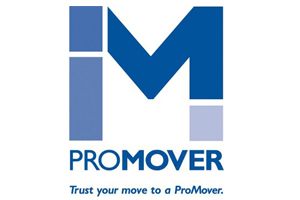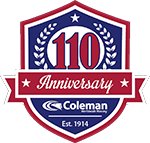AMSA and BBB Offer Tips for Safe, Secure Move
May is National Moving Month, which kicks off the busiest time of year for Americans changing residencies. It also means unlicensed “movers” and dishonest scammers are waiting to take advantage of unwary consumers. Better Business Bureau (BBB) is again joining with the American Moving & Storage Association (AMSA) to provide important tips on how to avoid scams.
In 2013, BBB received more than 1.7 million moving-related inquiries and more than 9,300 complaints against movers. Complaints included damaged or missing items, big price increases over originally-quoted estimates, late deliveries, and goods being “held hostage” for additional (disputed) payment.
"A con artist with just a truck and a website can claim to be a legitimate mover with unfortunate results for consumers who don’t check out a company in advance,” said AMSA president and CEO Linda Bauer Darr. "When it comes to such an important decision, you can save yourself a lot of problems by identifying a mover who puts customer service and integrity first. For interstate moves, that means an AMSA-certified ProMover."
"Finding a mover you can trust doesn’t need to be difficult, if you take the time to do some research,” added Mary E. Power, CAE, president and CEO of the Council of Better Business Bureaus. "Check with BBB first before you hire a mover. On bbb.org, we have free BBB Business Reviews on more than 17,000 companies that provide moving-related services.”
BBB and AMSA are offering the following tips for finding a trustworthy moving company:
Research the company thoroughly. While state regulations vary, all interstate movers must, at minimum, be licensed by the Federal Motor Carrier Safety Administration (FMCSA). FMCSA assigns a unique motor carrier number that can be verified at www.protectyourmove.gov. Also make sure you know whether you are dealing directly with a mover, or with a broker (middleman) who will refer your job to a mover you don’t know. Get at least three written in-home estimates. Not all price quotes online or over the phone are legitimate (or binding), and crooks are not likely to send an estimator to your home in advance. Also, remember that the lowest estimate can sometimes be an unrealistic, low-ball offer, which may cost you more in the end. Know your rights. Research your rights with either the FMCSA for interstate moves, or with the appropriate state agency for moves just within that state. Interstate movers must give you two booklets detailing your rights which are also available online. If a company threatens to hold your belongings “hostage,” enlist the help of BBB or local law enforcement. Consider accepting full value protection. It may cost a few dollars more, but it can provide some peace of mind and eliminate headaches after your move. Purchasing full (replacement) value protection from your mover means any lost or damaged articles will be repaired or replaced, or a cash settlement will be made to repair the item or to replace it at its current market value, regardless of age. It’s important to note, for example, that the required minimum coverage of 60 cents per pound would not cover the replacement cost of a flat panel TV if damaged in transit. The cost of full value protection must be included in the initial estimate you receive for an interstate move. FMCSA also requires interstate movers to offer arbitration to help settle disputed claims.To check out a mover near you, and for more consumer information you can trust, visit www.moving.org and www.bbb.org.
About AMSA: The American Moving & Storage Association, home of the ProMover program, is the national trade association representing the nation’s moving and storage companies, which provide household goods moving services, specialized transportation for sensitive freight such as computers and trade show exhibits, and warehouse storage services. The association has more than 4,000 members, including more than 200 international members, and sponsors programs and activities that promote consumer protection, professional development, safety, and operational efficiency. About BBB: For more than 100 years, Better Business Bureau has been helping people find businesses, brands and charities they can trust. In 2013, people turned to BBB more than 132 million times for BBB Business Reviews on more than 4.5 million businesses and Charity Reports on 11,000 charities, all available for free at bbb.org. The Council of Better Business Bureaus is the umbrella organization for 112 local, independent BBBs across North America, as well as home to its national programs on dispute resolution, advertising review, and industry self-regulation.



Comments